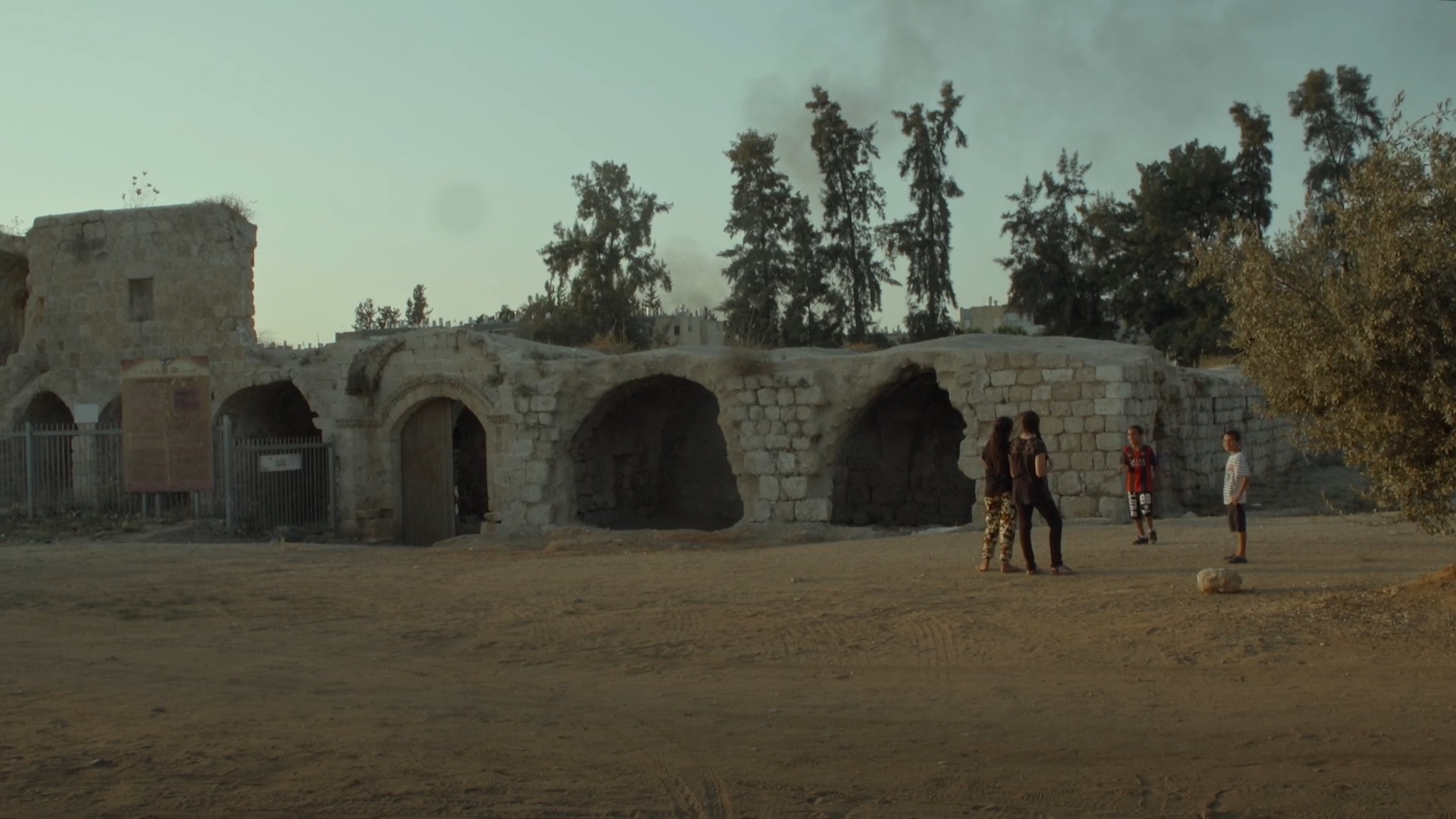Hours before a scheduled screening of a documentary about the 1948 depopulation of the Palestinian city of Lyd, Israeli police blocked a Jaffa theater from showing the film last week. The censorship incident, which occurred at the al-Saraya Theater last Thursday, October 10, followed a written order by the Minister of Culture and Sport Miki Zohar claiming that the film presented “a distorted picture of reality” that could incite “unrest and tensions in mixed [Jewish-Arab] cities.”
Among other aspects, Zohar took issue with the film’s “claims that the Israel Defense Forces carried out a brutal massacre of hundreds of innocent Palestinians and is still carrying out the Nakba to this day,” he wrote to Israel Police Commissioner Daniel Levy in a letter dated October 10.
Produced by Roger Waters, who co-founded the English rock band Pink Floyd, Lyd (2023) is a documentary with science-fiction elements about the ancient Palestinian city of Lyd (today known as Lod in Israel), which was first inhabited approximately 8,000 years ago during the Neolithic period. Directed by Rami Younis, who is a Palestinian journalist from Lyd, and Sarah Ema Friedland, a Jewish-American media artist and educator, it is set in the past, present, and an imagined future in which the 1948 al-Nakba (Arabic for “the catastrophe”) and the creation of the state of Israel never happened. The film contains never-before-seen archival footage of the depopulation of Lyd, interviews with its present-day Palestinian residents, and fantastical animation to explore a future without the Israeli occupation.
Today, the city has a Palestinian-minority population who have repeatedly faced violence from Israeli extreme nationalists and discriminatory treatment by police.
In his written order to cancel the screening, Zohra makes no mention of Friedland, but describes Younis as an “anti-Israel boycott activist” and Waters as “the leader of the global boycott movement.”
A day before the film was slated to screen at al-Saraya, Israeli police contacted the venue with claims of a far-right demonstration, the cinema’s director Mahmoud Abu Arisha said in an interview with Hyperallergic.
“Later, they asserted that the law ‘requires any institution screening to have approval from the Israeli Film Review Board at the Ministry of Culture,” Arisha said, adding that police officially informed theater staff four hours before the show that following through with the screening would be “considered a criminal offense.”
“The police stated they were prepared to prevent the screening if necessary and demanded we inform all ticket holders of the cancellation,” Arisha continued, noting that he was summoned into questioning at 7pm and that the theater must now submit future programming to Israel’s Ministry of Communications for approval.
Hyperallergic has reached out to the Ministry of Culture and Israel Police for comment.
Israel’s Film and Theater Review Board is a council created by an October 1927 ordinance created during British rule now used to block Palestinian films with a so-called anti-Israel narrative. In early 2023, following his appointment by Prime Minister Benjamin Netanyahu, Zohar pledged to withhold state funding from individuals, institutions, and venues platforming art that “defames Israel.”

This is the second time in less than two months that Israeli authorities have blocked a Palestinian-made film from screening at al-Saraya on claims of alleged incitement. In August, Israeli police blocked the presentation of Palestinian filmmaker Mohamad Bakri’s Jenin, Jenin 2 (2023), which centers on a two-day Israeli military attack on the city of Jenin in the Occupied West Bank.
“It’s nothing new — it’s targeting Palestinians,” Younis told Hyperallergic, citing previous instances in which Israeli authorities targeted his work on other projects such as the critical daily news show “On the Other Hand” and the Palestine Music Expo festival.
Friedland told Hyperallergic that the screening cancellation “is an example of the kind of censorship we are seeing around the world, including in the United States.”
“It is not surprising that Israel has censored Lyd,” she said. “It just shows that we are part of a larger struggle against rising facism around the world.”

